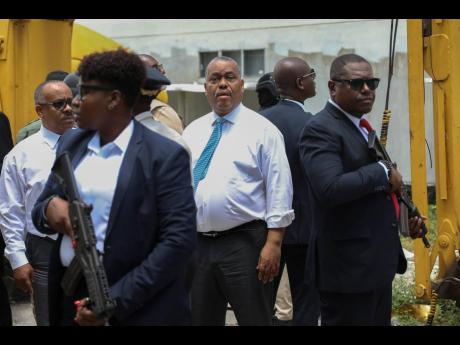Police take back largest hospital from gang control
PORT-AU-PRINCE (AP):
Haiti’s newly selected Prime Minister Garry Conille and Haiti’s police chief visited the capital’s largest hospital on Tuesday, after authorities said they took control of the medical institution over the weekend from armed gangs.
Haitian police chief Normil Rameau told a news conference on Monday that police took control of the Hospital of the State University of Haiti, known as the General Hospital, in Port-au-Prince, on Sunday night after months of escalating attacks from armed groups.
Haitians will “wake up one morning and find the operation done, the bandits stopped, and neutralised”, Rameau said at the briefing, but did not take questions from the media. He was accompanied by Kenyan officer Godfrey Otunge, who said that the UN-backed contingent of Kenyan police intends to work closely with Haitian authorities as well as local and international partners dedicated to rebuilding Haiti.
The attacks from criminal groups have pushed Haiti’s health system to the brink of collapse, and the escalating violence has led to a surge in patients with serious illnesses and a shortage of resources to treat them.
Gangs have been looting, setting fires, and destroying medical institutions and pharmacies in the capital, where they control up to 80 per cent of the area.
WATER-BORNE DISEASES
Haiti’s healthcare system, already struggling before the violence, faces additional challenges from the rainy season, which is likely to worsen conditions and increase the risk of water-borne diseases.
Poor hygiene conditions in camps and makeshift settlements have heightened the risk of diseases like cholera, with over 84,000 suspected cases in the country, according to a UNICEF report.
Besides the hospital, gunmen have seized police stations, attacked the main international airport (which was closed for nearly three months), and stormed Haiti’s two largest prisons.
According to a report from the UN migration agency, the violence in Haiti has displaced nearly 580,000 people since March.

